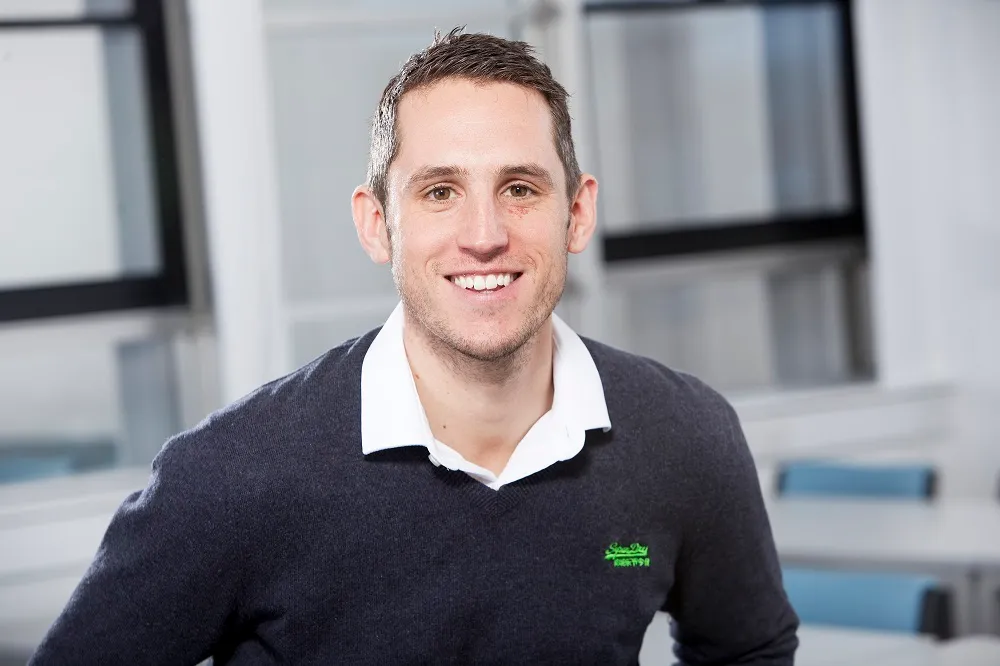Heading 1
Heading 2
Heading 3
Heading 4
Heading 5
Heading 6
Lorem ipsum dolor sit amet, consectetur adipiscing elit, sed do eiusmod tempor incididunt ut labore et dolore magna aliqua. Ut enim ad minim veniam, quis nostrud exercitation ullamco laboris nisi ut aliquip ex ea commodo consequat. Duis aute irure dolor in reprehenderit in voluptate velit esse cillum dolore eu fugiat nulla pariatur.
Block quote
Ordered list
- Item 1
- Item 2
- Item 3
Unordered list
- Item A
- Item B
- Item C
Bold text
Emphasis
Superscript
Subscript
About This Simulation
Learn about the structure, nomenclature and a few reactions of organic compounds, and use this knowledge to help out your virtual friend Simon with some strange medicine!
Learning Objectives
- Give examples of uses of organic compounds
- Identify the carbon valence electrons and the hybridization of their orbitals
- Predict the angles of covalent bonds of carbon atoms in hydrocarbons
- Apply the nomenclature of simple hydrocarbons
- Interpret some of the important representations of hydrocarbons
- Give examples of functional groups of organic compounds and their reactions
About This Simulation
Lab Techniques
- Bromine test for unsaturated hydrocarbons
- Ceric Ammonium Nitrate test for alcohols and phenols
Related Standards
- HS-PS1-3, HS-PS1-6
- Unit 2: Ionic Compounds Structure and Properties
- 10.1 Fundamentals of organic chemistry
- 10.2 Functional group chemistry
- 20.1 Types of organic reactions
Learn More About This Simulation
What do all living things, and even some non-living things, have in common? They are all built from organic compounds! In the Organic Chemistry Introduction simulation, you will learn what an organic compound is. With your lab assistant Dr. One, you explore how organic compounds are structured, how we name them, and how we represent them in both 2D and 3D.
Test the functional groups
A central concept in Organic Chemistry is functional groups. You will use your acquired knowledge to help your friend, Simon, by determining if a medicine he has received can be trusted. Guided by Dr. One, you will carry out basic chemical tests to verify the functional groups this medicine contains, and learn about some of the ways organic compounds can react.
Make it react
The lab focuses on a high level of interactivity. When working with types of carbon bonds and their angles, you get to build your own 3D carbon molecules on our holotable. In the fume hood, you can make mistakes with the hazardous solutions without consequences, and become comfortable with the equipment we use. Quiz questions on-the-go ensure that you learn the essential points. You can also always look at the Theory pages to extend your knowledge further.
Solving the solutions
At the end of the Organic Chemistry Introduction simulation, you will have to combine the test results and your knowledge to solve the organic chemistry puzzle. Will you be able to identify the right functional groups in Simon’s medicine and make sure he will be okay when taking it?
Experience Labster for Yourself
75% of students show high engagement and improved grades with Labster
Easily bolster your learning objectives with relevant, interactive content
Practice a lab procedure or visualize theory through narrative-driven scenarios

For Science Programs Providing a Learning Advantage




















FAQs
Find answers to frequently asked questions.
Heading 1
Heading 2
Heading 3
Heading 4
Heading 5
Heading 6
Lorem ipsum dolor sit amet, consectetur adipiscing elit, sed do eiusmod tempor incididunt ut labore et dolore magna aliqua. Ut enim ad minim veniam, quis nostrud exercitation ullamco laboris nisi ut aliquip ex ea commodo consequat. Duis aute irure dolor in reprehenderit in voluptate velit esse cillum dolore eu fugiat nulla pariatur.
Block quote
Ordered list
- Item 1
- Item 2
- Item 3
Unordered list
- Item A
- Item B
- Item C
Bold text
Emphasis
Superscript
Subscript
Labster is hosted online, which means that students only have to login from their internet browsers once an account is created.
Labster is only available for purchase by faculty and administration at academic institutions. To procure Labster, simply reach out to us on our website. Schedule a demo, book a meeting to discuss pricing, start a free trial, or simply fill out our contact form.
Labster simulations are created by real scientists and designed with unparalleled interactivity. Unlike point and click competitors, Labster simulations immerse students and encourage mastery through active learning.
Labster supports a wide range of courses at the high school and university level across fields in biology, chemistry and physics. Some simulations mimic lab procedures with high fidelity to train foundational skills, while others are meant to bring theory to life through interactive scenarios.


















